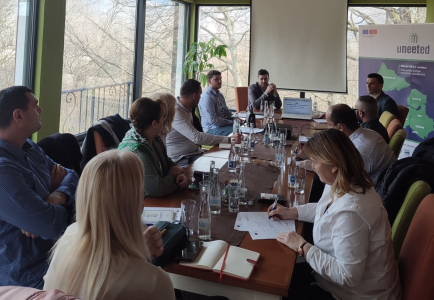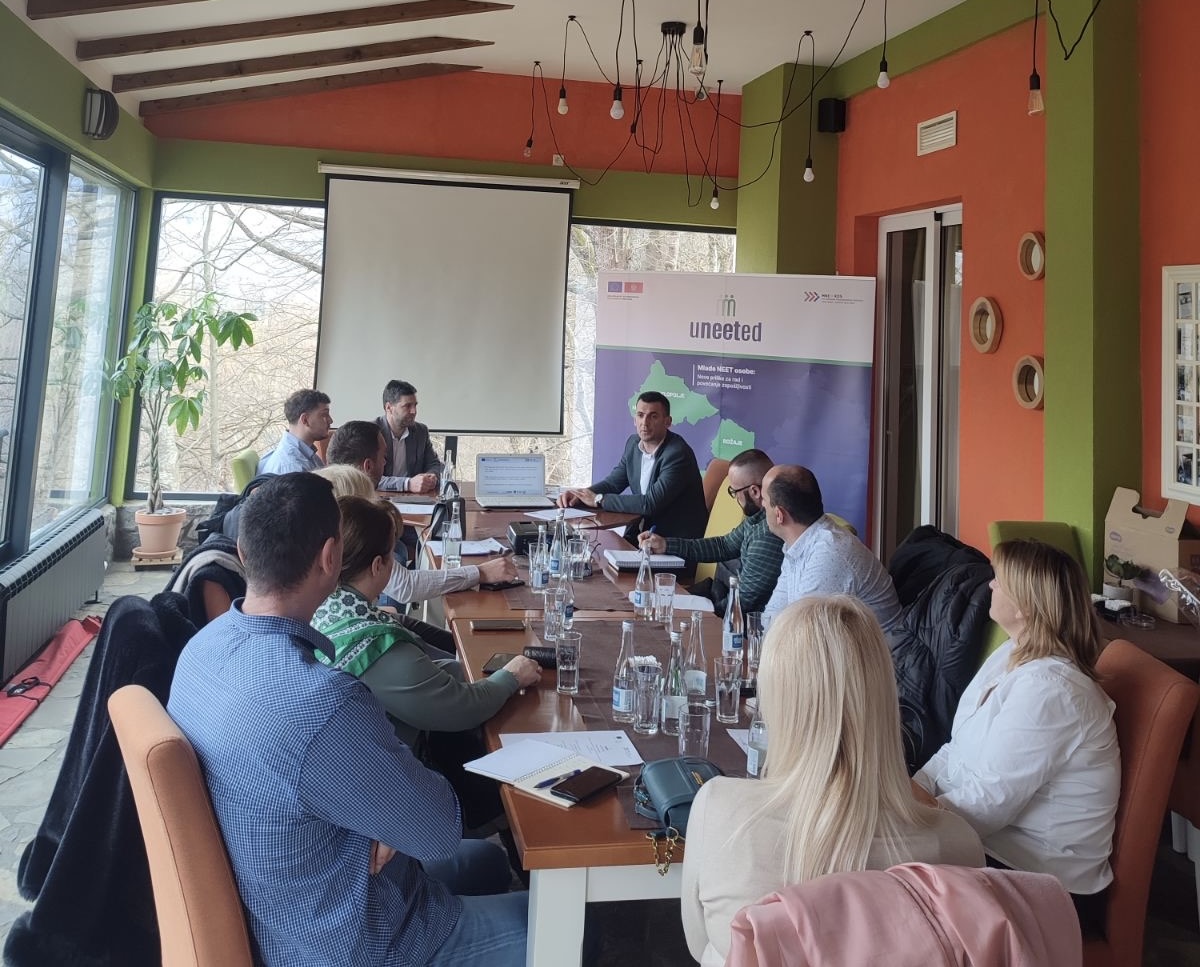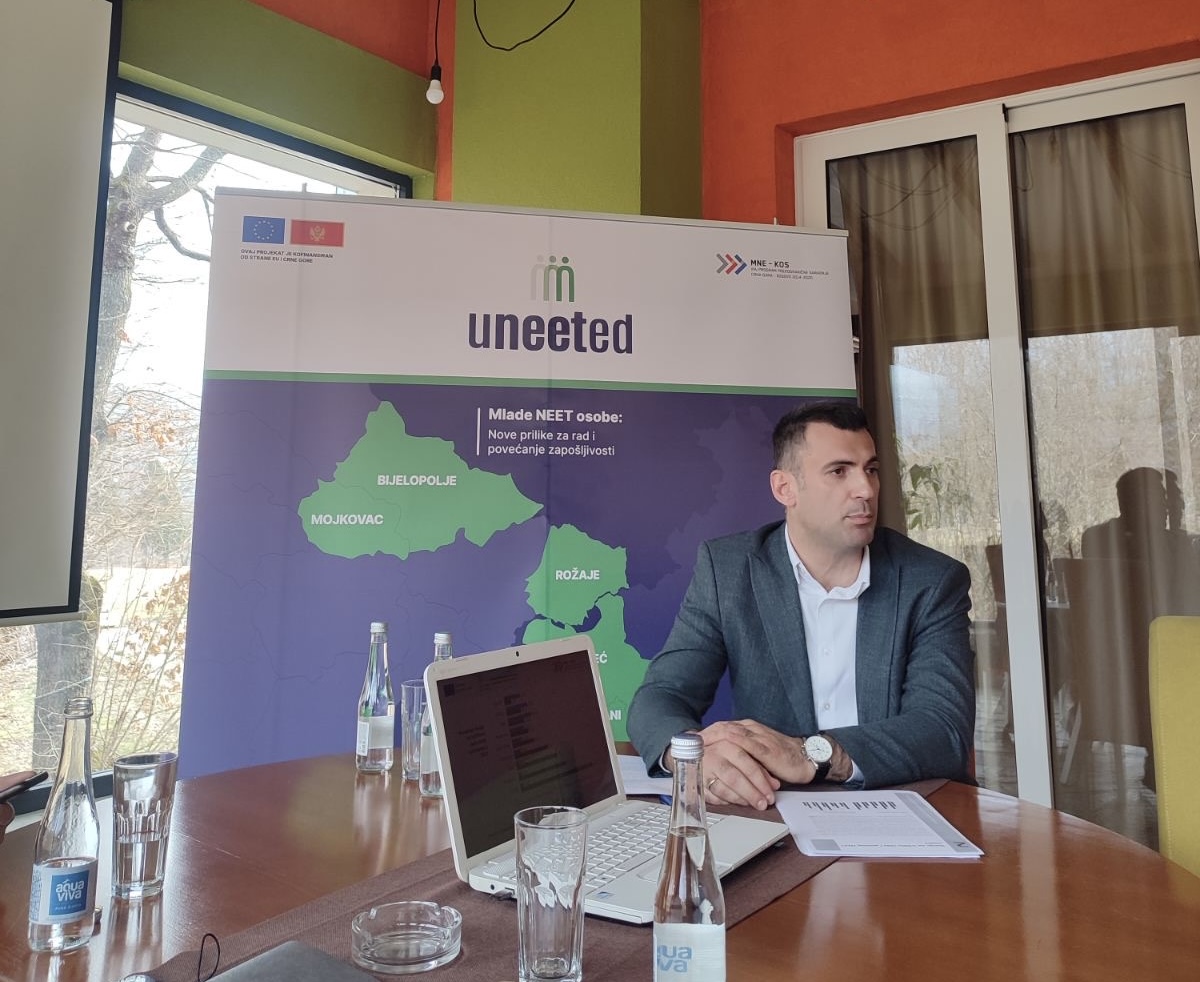Loading

Discover groundbreaking insights into the NEET population across five municipalities in Montenegro — Bijelo Polje, Gusinje, Mojkovac, Plav, and Rozaje — through the pioneering research conducted under the "UNEETED" project. This project, constituting the first phase, is dedicated to fostering new pathways to employment and enhancing the employability of young individuals not engaged in Education, Employment, or Training (NEETs) within the region.
Aligned with broader societal objectives, the research aims to elevate the social standing of young NEETs by shedding light on their challenges and needs, thus spotlighting them as a vulnerable demographic.
Key focal points of this comprehensive study encompass the demographic makeup of NEET respondents, their living arrangements, educational backgrounds, parental employment status, academic profiles, receptiveness towards additional educational programs, aspirations for further formal education, and underlying causes of unemployment. Furthermore, the research delves into their prior work experiences, attitudes towards seasonal employment, strategies for job hunting, satisfaction levels with the Public Employment Service, perceptions regarding local employment prospects, and contemplations regarding entrepreneurial ventures.
Today, a presentation of the results was organized in Mojkovac, offering stakeholders and community members a firsthand opportunity to engage with and discuss the findings. This paper encapsulates a rich tapestry of data and insights, providing a nuanced understanding of the multifaceted dynamics surrounding the NEET population in Montenegro's designated municipalities. Through this elucidation, it endeavors to inform targeted interventions and policies aimed at bolstering the prospects and livelihoods of young NEETs, ultimately fostering a more inclusive and resilient society.
You may access the full paper here.
